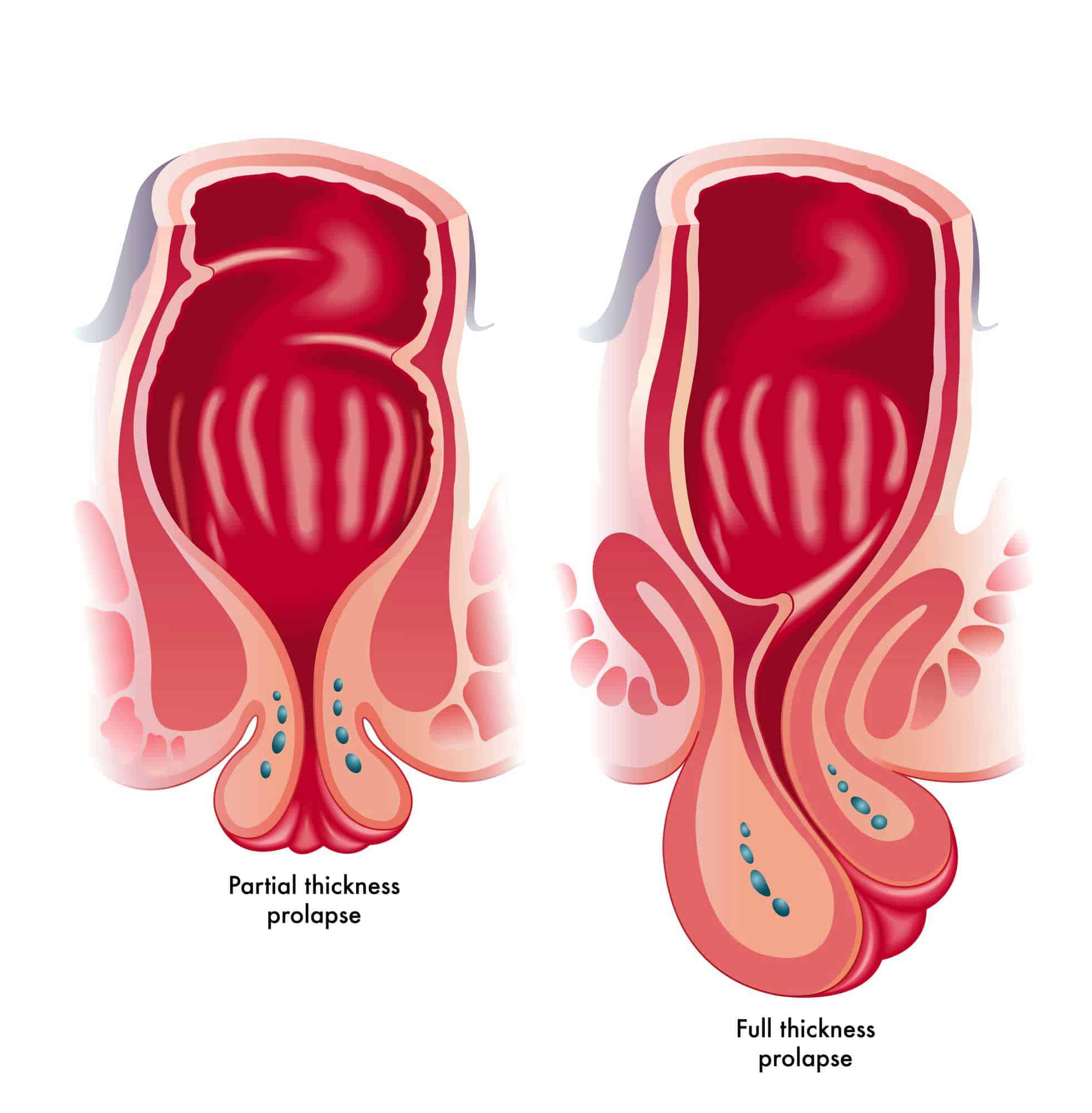Rectal Prolapse
Rectal Prolapse

What is rectal prolapse?
Rectal prolapse is where your rectum, which is the last part of your large intestine, bulges out of your anus, most commonly during a bowel movement. Sometimes, this can be confused with hemorrhoid prolapse; however, unlike hemorrhoid prolapse, which involves only a part of the lining of the rectum, rectal prolapse is when the entire rectum comes out. It can be hard to tell the difference if you are not familiar with this problem.
What causes rectal prolapse?
Rectal prolapse is caused by a weakening in the muscles and ligaments that usually hold the rectum in place. Sometimes these weaknesses occur as people age; however, this weakening may happen even with teenagers or young adults who experience chronic straining due to constipation or a genetic condition. Overall, it is more common in women.
Can rectal prolapse go away?
Rectal prolapse will usually not go away without surgery. Over time, a rectal prolapse tends to occur more often and eventually, your rectum may stay out and not go back inside your anus.
What should I do if I have rectal prolapse?
If you notice your rectum has prolapsed or slipped out, you should try to push it back in. Lying down, relaxing your stomach muscles, and applying gentle pressure on your rectum can help. If you cannot get it back in you should call our office immediately or go to an emergency department. If your rectum has prolapsed, please make an appointment in our office so we can evaluate it and help decide the best course of action for your situation.
How do you fix rectal prolapse?
Rectal prolapse can only be fixed with surgery. However, there are different surgeries available to repair it. These include surgeries through the anus or the abdomen. Abdominal surgery is almost always done with a minimally invasive approach which means laparoscopically or robotically.

